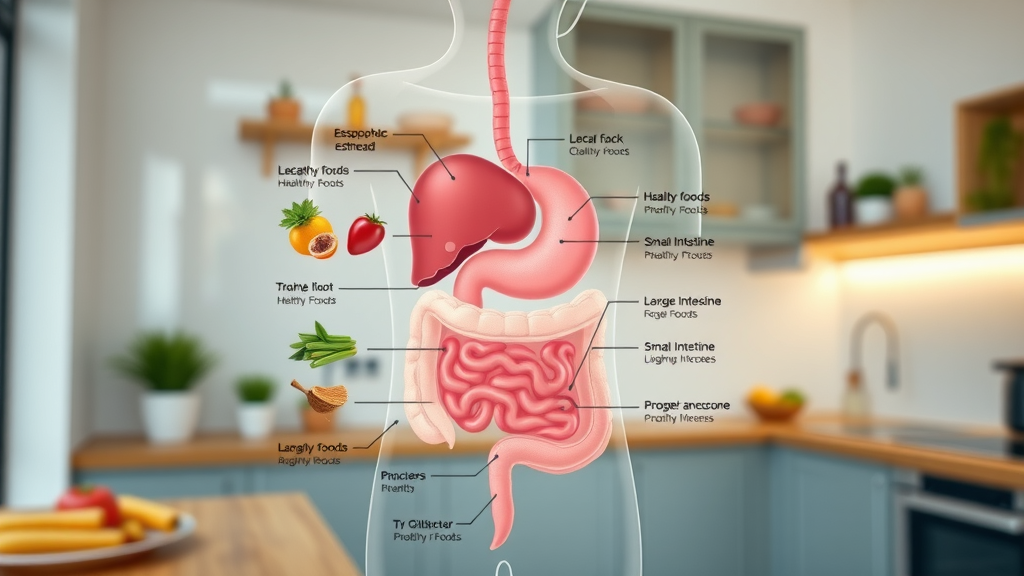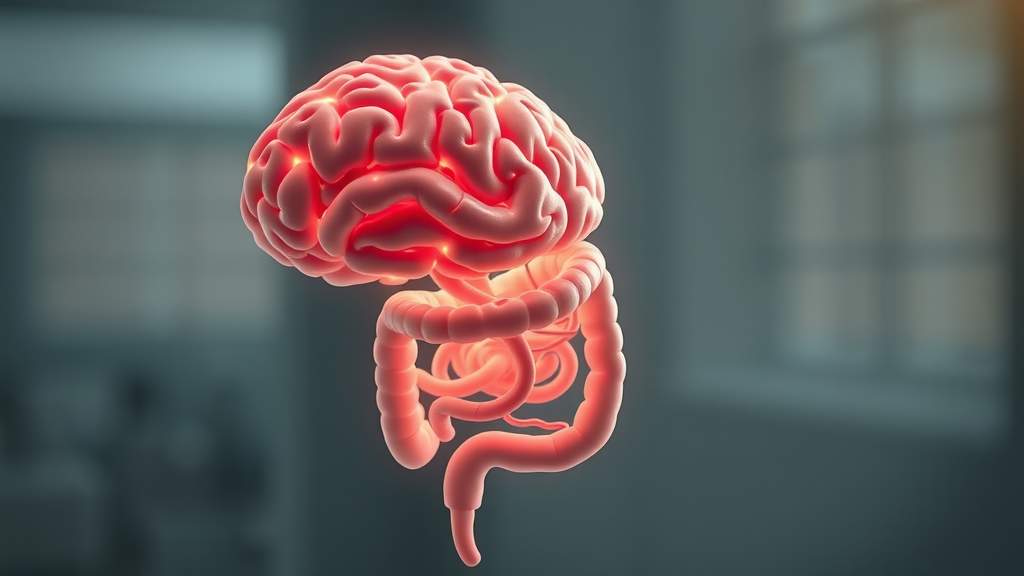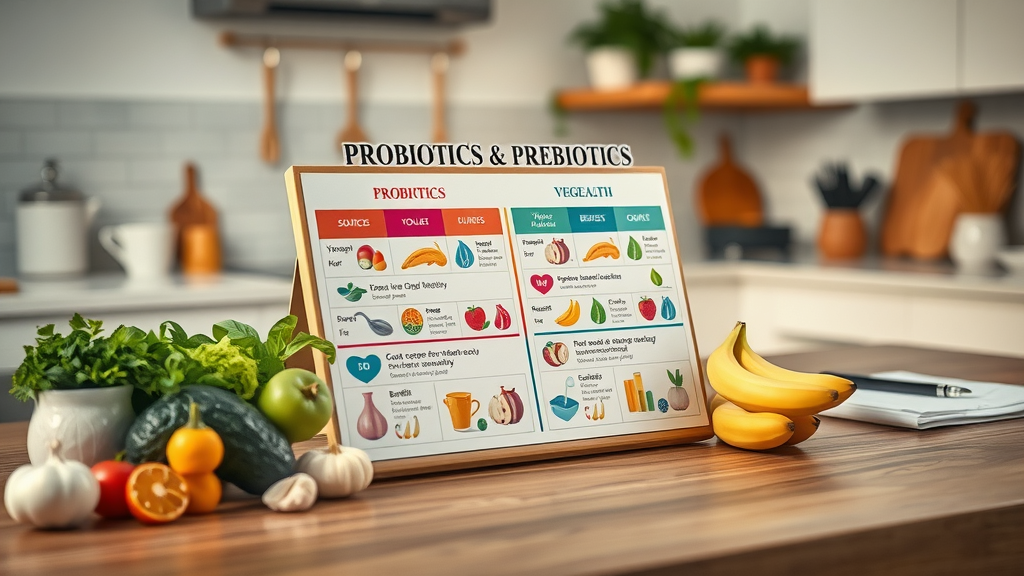Did you know that your gut health could be the key to unlocking boundless energy and vitality? In our modern lives, we often overlook the crucial role our digestive system plays in overall well-being. In “Unlock Your Gut Health: 5 Secrets for Instant Vitality Boost,” we dive deep into the fascinating world of gut health , revealing actionable secrets that can transform your life. By mastering these insights, you not only enhance your physical health but also uplift your mood and mental clarity. Ready to feel revitalized? Let’s get started!
What is Gut Health and Why is it Important?
Gut health refers to the balance and function of the microbial ecosystem in the gastrointestinal (GI) tract, which plays a significant role in our overall well-being. The GI tract is responsible for digesting food, absorbing nutrients, and eliminating waste. When our gut is functioning optimally, it supports a healthy immune system, mental health, and nutrient absorption.
The GI Tract: An Overview
The GI tract is a complex system that includes various organs:
Organ |
Function |
|---|---|
Mouth |
Begins the digestive process |
Stomach |
Breaks down food with acids and enzymes |
Small Intestine |
Absorbs nutrients and minerals |
Large Intestine |
Eliminates waste and absorbs water |
Mouth : Where the digestion begins.
Stomach : Holds the food, mixing it with gastric juices.
Small Intestine : Nutrient absorption occurs here.
Large Intestine : Responsible for waste management.
The Role of Gut Microbiota in Overall Health
The gut is home to trillions of microorganisms, collectively known as the gut microbiota . These microbes are crucial for:
Digestion : They help break down complex carbohydrates and fibers.
Immune Function : They play a role in the body’s defense mechanism.
Mental Health : Emerging studies suggest that gut bacteria influence mood and cognitive functions.
“A balanced gut microbiome is essential for maintaining good health and preventing diseases.”

Factors Affecting Gut Health
Numerous factors can negatively affect our gut health , from diet to lifestyle choices. Understanding these can help us make informed decisions.
Diet: What to Eat for a Good Gut
A healthy diet is the cornerstone of good gut health. Here are some foods that can improve your gut microbiota:
Fruits and Vegetables : Rich in fiber, vitamins, and minerals.
Fermented Foods : Such as yogurt, kefir, and sauerkraut, which introduce beneficial bacteria.
Whole Grains : High in fiber, promoting healthy digestion.
The Impact of Added Sugar and Processed Foods
Added Sugars : Excessive intake can lead to an imbalance in gut bacteria, promoting the growth of harmful microbes.
Processed Foods : Often low in nutrients and high in unhealthy fats and sugars, they can disrupt gut function.
How Stress Affects Gut Health
Chronic stress can lead to a variety of gut issues, including:
Irritable Bowel Syndrome (IBS)
Bloating and Gas
Altered Bowel Movement Patterns
“Managing stress is crucial for maintaining a healthy gut.”

Signs of Unhealthy Gut
Recognizing the signs of poor gut health is essential for timely intervention.
Common Symptoms of Poor Gut Health
Bloating : A common indicator of an unbalanced gut.
Gas : Excessive gas can signal digestive problems.
Upset Stomach : Regular discomfort after meals may indicate gut issues.
Gut Issues: When to See a Care Provider
If you experience any of the following symptoms consistently, it’s time to consult a healthcare professional:
Chronic Diarrhea or Constipation
Severe Abdominal Pain
Unexplained Weight Changes

Improving Gut Health Naturally
Improving gut health can be achieved through several natural approaches.
Dietary Changes to Support Gut Health
Incorporating Fermented Foods : Such as kimchi, kombucha, and miso.
The Importance of High Fiber Foods : Foods like beans, lentils, and whole grains promote healthy digestion.
Incorporating Fermented Foods
Yogurt : Contains live bacteria that boost gut health.
Kefir : A fermented milk drink rich in probiotics.
Sauerkraut : Fermented cabbage that helps improve gut flora.
The Importance of High Fiber Foods
Whole Grains : Such as oats and brown rice, help regulate bowel movements.
Fruits and Vegetables : Provide fiber necessary for a healthy gut lining.

The Gut-Brain Connection
The connection between gut health and mental well-being is a fascinating area of research.
How Gut Health Influences Mental Health
Studies have shown that healthy gut bacteria can help alleviate symptoms of anxiety and depression. The gut produces neurotransmitters like serotonin, which plays a crucial role in mood regulation.
The Role of Gut Bacteria in Brain Function
Gut Microbiome : Influences cognitive functions and emotional responses.
Communication Pathways : Gut bacteria communicate with the brain through the vagus nerve.

The Role of Probiotics and Prebiotics in Gut Health
Understanding the difference between probiotics and prebiotics is key to promoting gut health.
What are Probiotics?
Probiotics are live bacteria that provide health benefits when consumed. They can help restore the balance of gut bacteria after disruptions.
Prebiotics: Fuel for Good Gut Bacteria
Prebiotics are non-digestible fibers that feed the beneficial bacteria in the gut.
Found in foods like garlic, onions, and bananas.

Professional Support for Gut Health
Sometimes, seeking professional help is necessary for maintaining gut health .
When to Consult a Health Care Professional
If you experience persistent gut issues, consider consulting a healthcare provider for diagnostic tests, including:
Blood Tests : To check for nutrient deficiencies.
Stool Tests : To assess gut microbiota balance.
Potential Treatments for Gut Issues
Treatment options may include:
Probiotic Supplements : To restore gut flora.
Dietary Changes : Tailored plans to improve gut health.

Lifestyle Changes to Promote Gut Health
Integrating healthy habits into your routine is vital for sustaining gut health .
The Importance of Regular Exercise
Regular physical activity can help maintain a healthy gut by:
Promoting Healthy Digestion
Reducing Stress Levels
Maintaining a Healthy Sleep Schedule
Quality sleep is essential for overall health, including gut health. Aim for at least 7-8 hours of sleep per night to allow your body to recover and maintain balance.

Conclusion and Key Takeaways
In summary, focusing on your gut health can lead to improved overall well-being. Here are the key takeaways:
Understanding the GI tract is essential.
A balanced diet rich in fiber and low in processed foods supports gut health.
Recognizing symptoms of poor gut health can lead to early intervention.
Incorporating probiotics and prebiotics can enhance gut microbiota.
Lifestyle changes, including exercise and sleep, are crucial for maintaining gut health.
“A healthy gut is the foundation of a healthy body.”

FAQs
What are probiotics and how do they help my gut health?
Probiotics are beneficial bacteria that help maintain a healthy balance in your gut microbiome, improving digestion and boosting immunity.Can stress affect my gut health?
Yes, chronic stress can lead to digestive issues and an imbalance in gut bacteria, affecting overall health.How can I tell if I have gut health issues?
Symptoms such as bloating, gas, and irregular bowel movements can indicate poor gut health. If these persist, consult a healthcare professional.What dietary changes can improve my gut health?
Increasing your intake of fiber-rich foods and fermented foods can significantly improve your gut health.Is it necessary to see a healthcare provider for gut health concerns?
If you experience chronic symptoms or significant discomfort, it’s essential to consult a healthcare provider for evaluation and treatment options.
 Add Row
Add Row  Add
Add 




Write A Comment